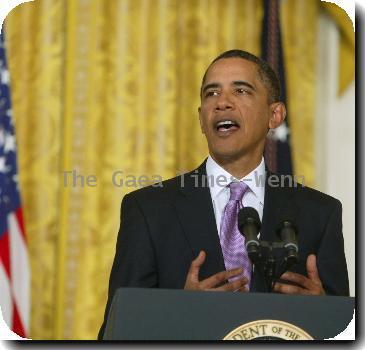Suicide car bombing kills 17, wounds nearly 140 in Russia’s volatile Caucasus region
By Sergei Venyavsky, APThursday, September 9, 2010
Suicide car bombing in southern Russia kills 17
ROSTOV-ON-DON, Russia — Russian Prime Minister Vladimir Putin blamed extremists “without souls, without hearts” for a suicide car bombing that killed 17 people Thursday in the crowded central market of a city in the North Caucasus.
It was the fourth terrorist attack at the market in a decade, and while no one claimed responsibility, the Kremlin has been trying to contain Islamic militancy in the mountainous southern region of Russia.
Nearly 140 were wounded in the bombing in Vladikavkaz, the capital of North Ossetia, with about a half-dozen hospitalized in very serious condition.
Putin met with Russia’s top Muslim cleric after the blast and said Russia’s estimated 20 million Muslims should play a key role in eradicating Islamic extremism in the nation.
“The crimes like the one that was committed in the North Caucasus today are aimed at sowing enmity between our citizens. We mustn’t allow this,” Putin said in televised remarks at the meeting.
The bomber drove to the market’s main entrance and detonated the explosives, the Emergency Situations Ministry said. The blast tore the car in half, littered the market square with shrapnel and blew out windows in nearby buildings, according to nationally broadcast video that also showed charred body parts — presumably those of the bomber — bloodstains on the pavement and rows of scarred vehicles.
The bomber was identified as a resident of neighboring Ingushetia, the independent Kavkazsky Uzel website reported, quoting an unidentified official.
The death toll included the bomber, and 98 of the 138 people wounded in the explosion were hospitalized, said Alexander Pogorely of the Emergency Situations Ministry. The RIA Novosti news agency said six ethnic Ingush were among the wounded.
Three suspected accomplices of the bomber were detained, federal security chief Alexander Bortnikov said in televised remarks.
Putin blamed the violence on “people without souls, without hearts. They literally hold nothing sacred. Our common duty is to fight these crimes, these criminals.”
The attack came as Muslims prepared for the feast that celebrates the end of the holy month of Ramadan.
Unlike the provinces of Chechnya, Ingushetia and Dagestan, where Muslims make up most of the population, North Ossetia is predominantly Orthodox Christian. It has been destabilized by long-simmering tensions between ethnic Ossetians and ethnic Ingush that exploded into an open fighting in 1992.
President Barack Obama condemned the attack and said it underscores the resolution of Washington and Moscow to cooperate in fighting terrorism.
“Our hearts go out to the people of North Ossetia, who have already suffered so much from horrific acts of terrorism,” he said in a statement.
Russian President Dmitry Medvedev immediately sent his regional envoy to Vladikavkaz to help coordinate efforts to help the victims. He urged investigators to “do everything to track down the freaks, the lowlifes who conducted that terror attack.”
The regional president of Ingushetia, Yunus-Bek Yevkurov, quickly sent condolences to the leader of North Ossetia to help assuage tensions between the two ethnic groups.
It was the deadliest attack in the region since a double suicide bombing killed 12 in nearby Dagestan in April. Twin suicide bombings on Moscow subway in March killed 40 people and wounded over 100.
Russia’s ethnically diverse North Caucasus region has been gripped by violence stemming from two separatist wars in Chechnya and fueled by endemic poverty and rampant official corruption. Human rights groups say law enforcement officers frequently resort to extrajudicial killings, kidnappings and torture, breeding hostility and provoking retaliatory attacks.
The Vladikavkaz market area has been the target of several bomb attacks in the past dozen years in which scores of people have died. A 1999 bombing killed 55 people. Another explosion in 2001 killed six, and in 2004, 11 people died when a minibus near the market was bombed.
North Ossetia was also the scene of the 2004 Beslan siege, where Chechen militants took hundreds of hostages at a school. It ended in a bloodbath in which more than 330 people, about half of them children, were killed.
Associated Press Writers Jim Heintz, Vladimir Isachenkov and Mansur Mirovalev in Moscow and Arsen Mollayev in Malhachkala contributed to this story.
Tags: Barack Obama, Bombings, Chechnya, Eastern Europe, Europe, Improvised Explosives, Moscow, Race And Ethnicity, Russia, Terrorism, Vladimir Putin

